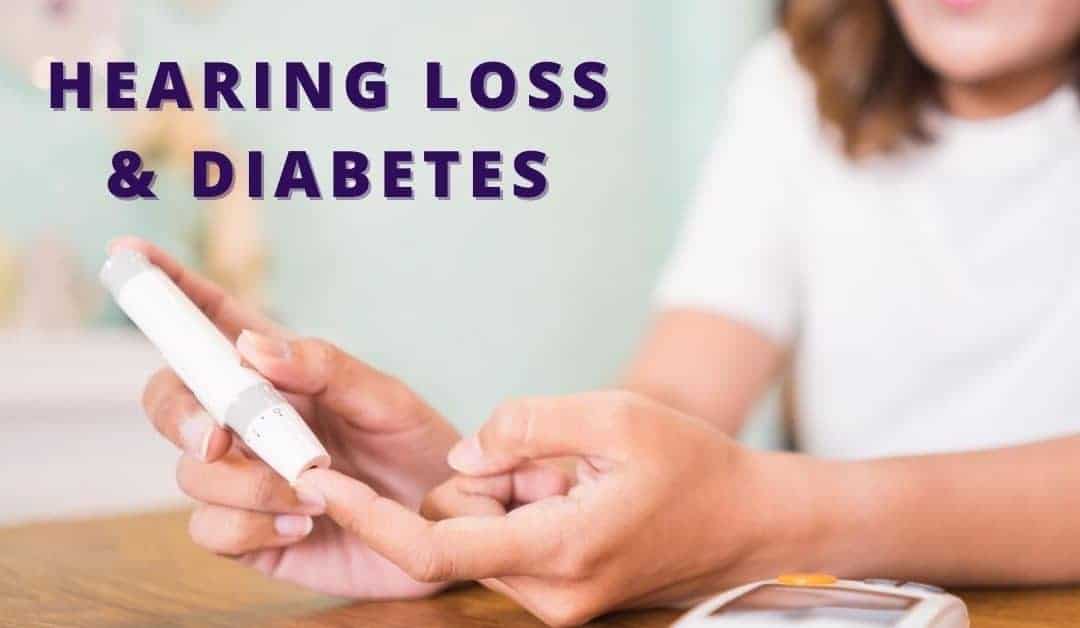More than 34 million people in the U.S. have diabetes. This chronic condition impacts how the body produces energy from the food we consume. Most of the food that we eat turns into glucose (sugar), which enters the bloodstream. The pancreas emits insulin when blood sugar increases to allow our cells to convert glucose into energy. Diabetes mellitus prevents the body from making insulin or using the insulin it produces effectively. This results in excess glucose in the bloodstream, which can lead to various health conditions, including hearing loss. A diabetes diagnosis is crucial for managing blood glucose levels and preventing complications, such as those related to diabetes and hearing loss, associated with the disease.
Understanding Sensorineural Hearing Loss
Hearing loss is the third most common chronic health condition that older adults experience. Increasingly becoming a public health epidemic, hearing loss impacts over 40 million people in the U.S. According to the National Institute on Deafness and Other Communication Disorders, nearly 1 in 8 people have some degree of hearing loss in one or both ears. Impaired hearing reduces one’s ability to hear and process sound, which can significantly impact one’s capacity to manage daily tasks and responsibilities. Hearing impairment strains communication, affecting relationships, job performance, social engagement, etc.
There are several factors that can contribute to the development of hearing loss, including environmental exposure to loud noise, genetic history, and existing medical conditions. Various health conditions are linked to hearing loss: cardiovascular disease, hypertension, obesity, stroke, and diabetes. Sustained high blood glucose levels in diabetes can damage nerves and blood vessels in the inner ear, which can affect hearing. Managing common risk factors, such as smoking and high blood pressure, can mitigate the risk of hearing impairment, especially in individuals with diabetes.
Link Between Hearing Loss & High Blood Sugar
The relationship between hearing loss and diabetes has long been studied. Research has shown that the two chronic health conditions are correlated. In a significant 2008 study conducted by the National Institute on Deafness and Other Communication Disorders, researchers investigated this link:
- Study: part of the National Health and Nutrition Examination Survey, the CDC collected data from 1999 to 2004 on hearing ability and diabetes. Participants were between the ages of 20-69.
- Findings: the findings revealed that adults with diabetes were more likely to also have hearing loss, specifically, for:
- Low-Mid frequency sounds:
- 21% percent of adults with diabetes
- 9% of adults without diabetes
- High-frequency sounds:
- 54% percent of adults with diabetes
- 32% of adults without diabetes
These statistics highlight that people with diabetes were twice as likely to have hearing loss compared to people without diabetes. Notably, a significant percentage of diabetic patients experience severe hearing loss. Diabetes-related hearing loss is particularly prevalent in individuals with poorly controlled diabetes or long-standing conditions, leading to increased risk and a need for awareness among those affected.
Diabetes & Hearing Health
Though diabetes has been identified as a risk factor for developing hearing loss, how diabetes affects hearing remains the focus of ongoing research. Researchers suggest that the excess glucose in the bloodstream damages the nerves and small blood vessels in the inner ear. Certain diabetes medications, like metformin, may impact the risk of sudden sensorineural hearing loss. Chronic high blood sugar can lead to conditions like sensorineural hearing loss due to impaired blood supply and nerve function. The hair cells, nerve endings, and blood vessels in the inner ear are critical for how we process sound. These components help convert sound waves into electrical signals that are then sent to the brain to process. Damage to the inner ear disrupts this process and results in sensorineural hearing loss.
Protecting Your Hearing Health
It is important to be as proactive as you can about your hearing health. Monitoring blood pressure levels is also crucial, as both systolic and diastolic blood pressure can significantly impact the prevalence and severity of hearing loss among individuals diagnosed with type 2 diabetes. If you have or are predisposed to diabetes, it is critical to be aware of the symptoms of hearing loss, which include the following:
- Increasing the volume on electronic devices (phone, speaker, television)
- Difficulty following conversations (sounds are muffled)
- Frequently asking others to repeat themselves, speak loudly and/or slowly
- Needing to move to a quieter area to have a conversation
- Being able to hear better in one ear vs. the other
- Trouble hearing, especially in environments with background noise
- Tinnitus, which is a buzzing or ringing noise in one or both ears
If you identify with any of these symptoms, you should have your hearing assessed as soon as possible. This is fairly simple and starts with making an appointment for a hearing test with a hearing healthcare specialist. Hearing tests involve a noninvasive process that measures your hearing ability in both ears. This determines any impairment, the degree, and the specific type of hearing loss you may be impacted by.
Fortunately, there are effective ways to treat hearing loss. The most common treatment is hearing aids which are electronic devices designed to absorb, amplify, and process sound which helps a person hear much more effectively and with greater ease.

